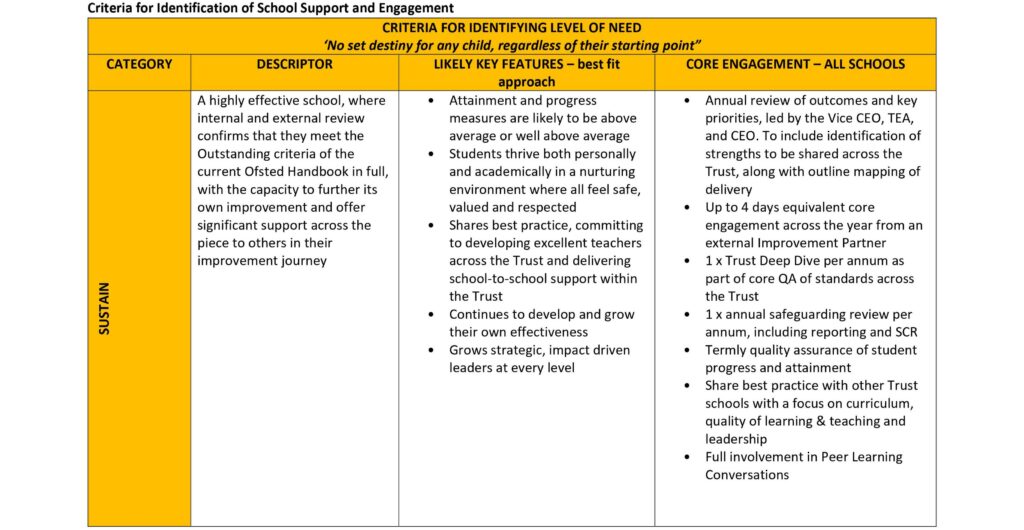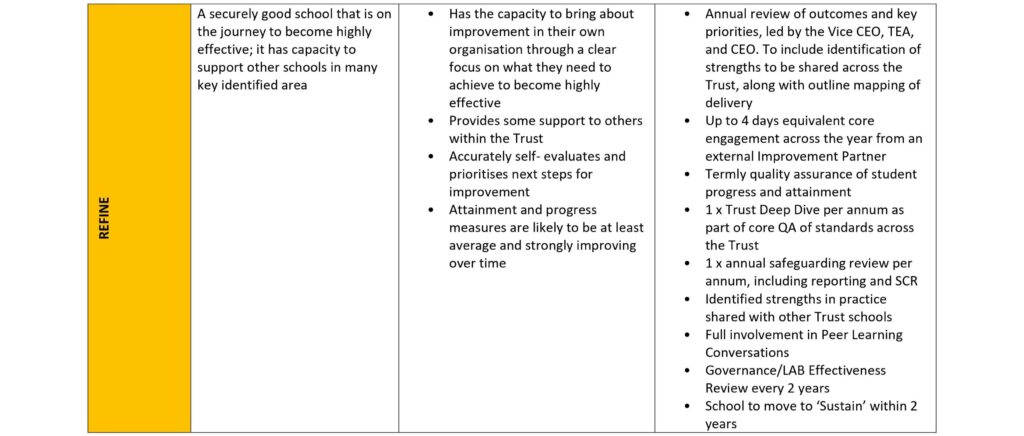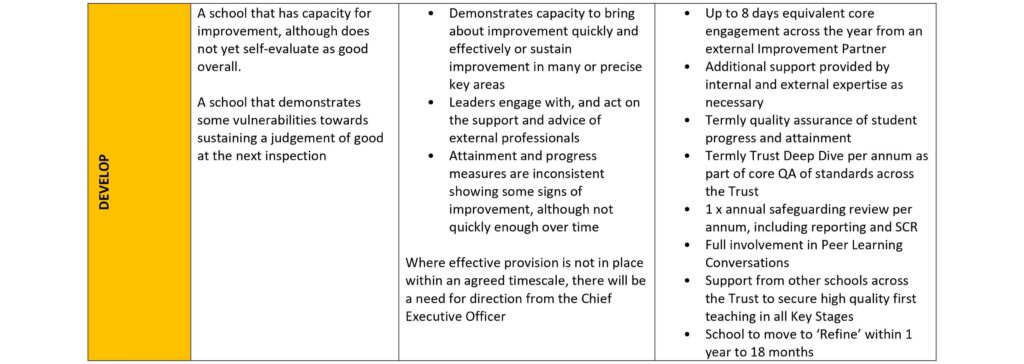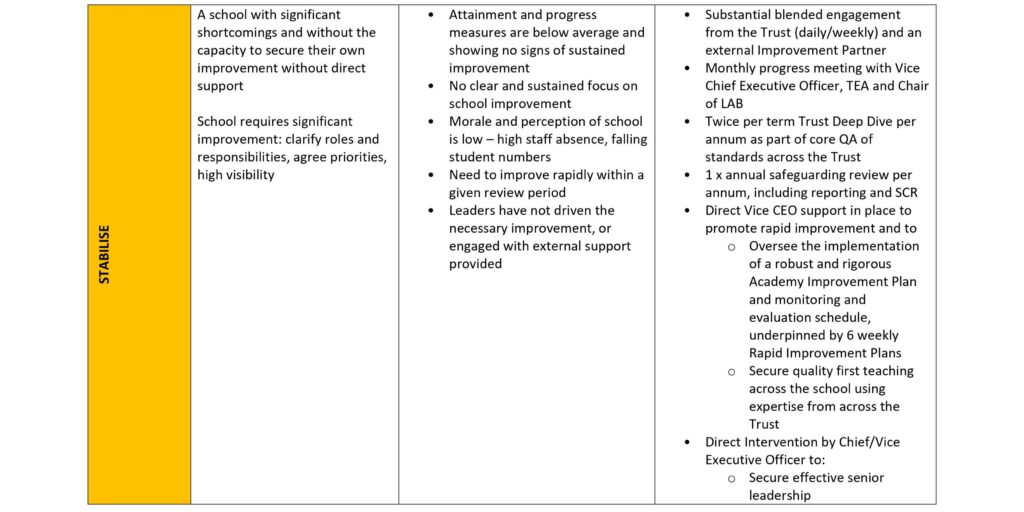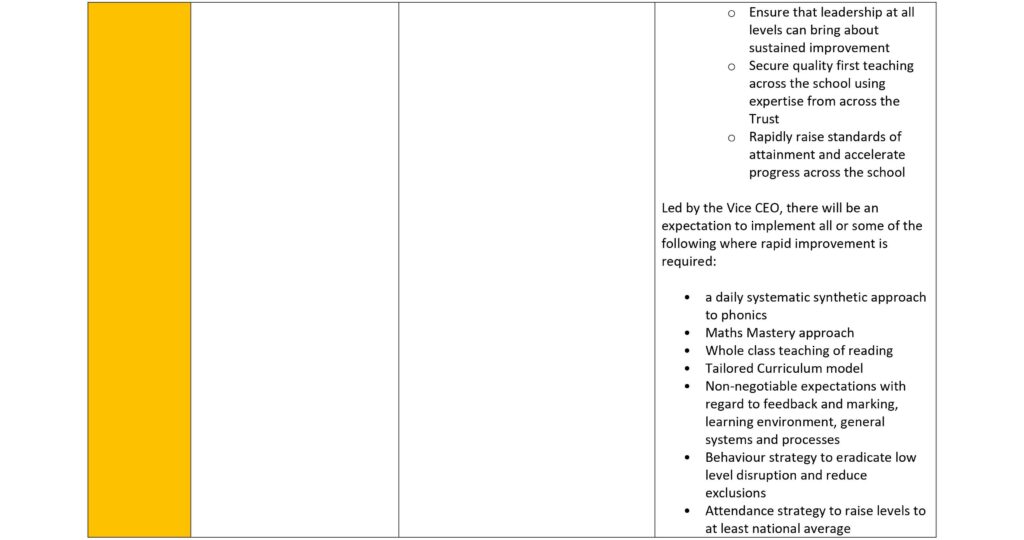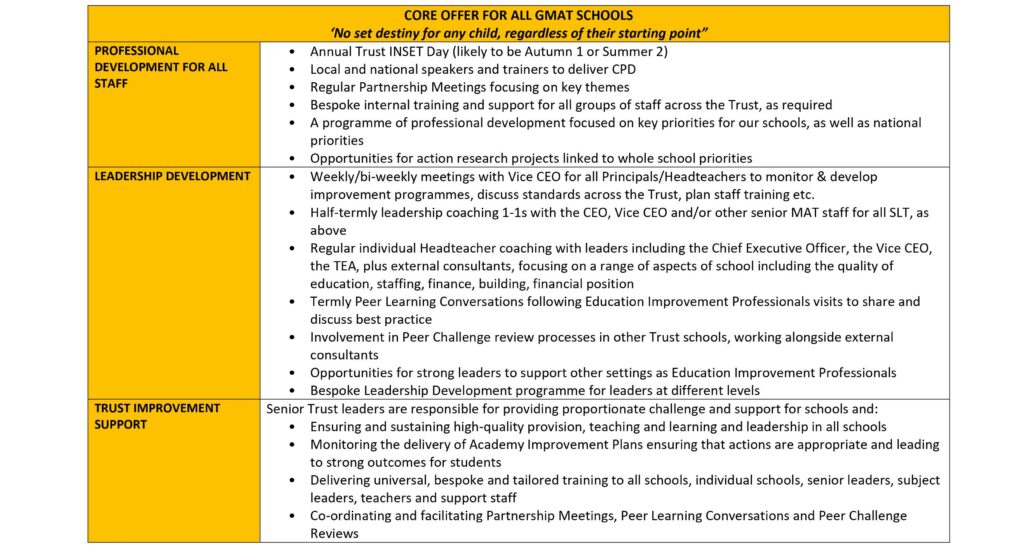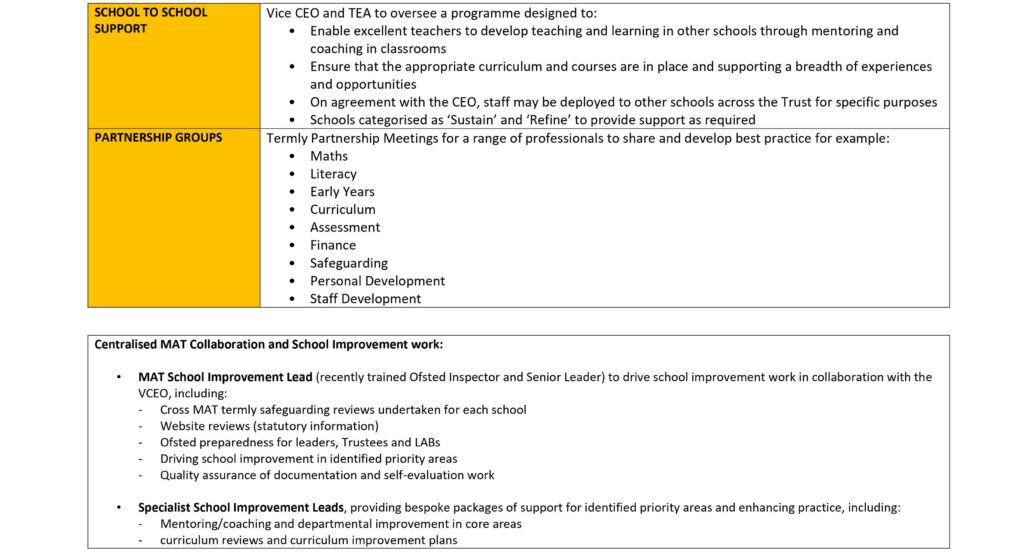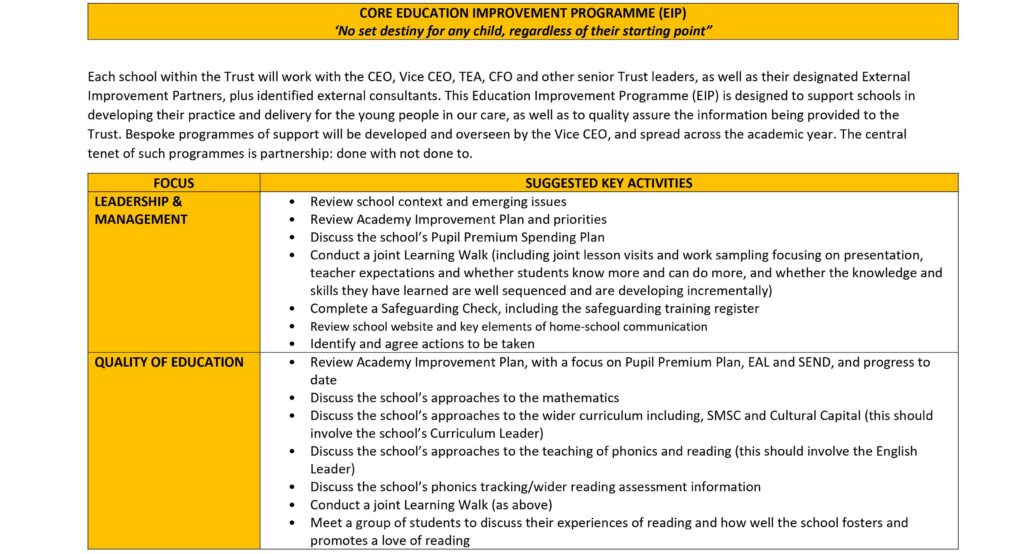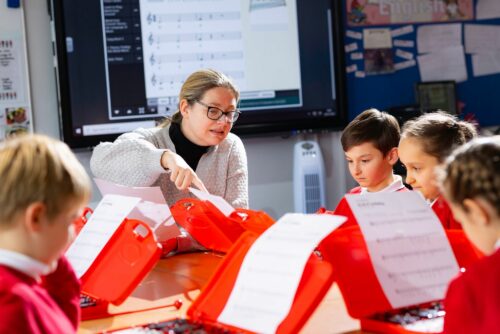GMAT Academy Improvement Strategy
GMAT Academy Improvement Strategy – “No Set Destiny for Any Child”
Partnership is at the heart of our improvement strategy with all of our academies, founded in a core commitment to there being no set destiny for any child, regardless of their starting point.
Fundamentally, we are committed to having a Trust wide school-led system that ensures:
- Quality first delivery day in and day out
- The highest standards of achievement, driving upward social mobility for all children in our care
- Robust and effective leadership and governance
- The highest standards of financial/business delivery, ensuring that the Trust’s business operation underpins the delivery and work of all of our academies
- Personalised, high quality professional development for staff, ensuring a highly skilled workforce. This work includes opportunities for the identification and dissemination of effective practice, and engagement in research and development.
All improvement work is designed to support our academies in being or becoming self-improving. As such, our improvement strategy has been shaped by the concept of strong collaboration so that the skills and talents that exist within the Trust can be of benefit to all. Whilst each academy in the Trust has its own unique identity and characteristics, they all have expertise and knowledge to share with each other: mutual challenge and support is central to our improvement philosophy.
Key components of our improvement strategy are:
- All academies in the Trust have an annual review of their performance, chaired by the Vice Chief Executive Officer, in partnership with the Chair of the Local Board, the CEO, the Trust Effectiveness Advisor, the Academy’s Principal/Headteacher, and the CFO – the latter so that financial resource and planning can underpin the work that is required
- All academies joining the Trust will have a performance review, as above, planning immediate improvement needs, key priorities and actions, prior to moving into the Trust’s annual improvement cycle
- During these meetings a range of information is considered as part of the decision-making process including outcomes against key performance indicators, initial analysis of unvalidated data (where available), a summative review of external visits in the preceding year, including external Improvement Partner visits, any other external reviews, and key action points from the most recent Ofsted; the academy’s Strategic Development Plan and its own self-evaluation
- Each academy receives at least 4 days from an allocated external Improvement Partner, who will work alongside academy leaders against a structured plan of support and challenge
- The Vice CEO and Trust Effectiveness Advisor will work with each academy to design a tailor a comprehensive, child centred Raising Achievement plan, working closely with senior and middle leaders in each academy to monitor progress and impact, and adjust as necessary
- Reviews of progress and impact involving the Vice Chief Executive Officer, the Trust Effectiveness Advisor, the Academy Principal/Headteacher, and other senior leaders as appropriate take place half-termly, in all cases, identifying and agreeing actions to be taken
- Half-termly reporting to the Local Boards and Board of Trustees in the form of KPI reports is in place, facilitating robust governance oversight, dialogue and challenge
- Each Principal/Headteacher and senior lead on Professional Development, develops a tailored professional development programme annually for all staff. Principals/Headteachers then liaise to identify opportunities for Trust wide, centralised CPD, including internal and external speakers. This is mapped onto calendars annually, with staff moving between Trust academies
- Trust funded external leadership coaching for all senior leaders
- Leadership and school improvement coaching by the Chief Executive Officer, Vice Chief Executive Officer, TEA and experienced Principals/Head teachers for identified senior and middle leaders
- The Trust operates within the principle of earned autonomy. Where academies can demonstrate that they have delivered consistently high levels of achievement for their students, it is appropriate and right that they have the capacity to operate in conditions that enable them to continue this journey
- As such, whilst ALL academies have the “core” school improvement offer outlined below, some academies will be in more challenging positions. Where this is the case, the Trust will maintain a higher degree of involvement and ensure that appropriate steps are being taken to strengthen capacity and effect rapid improvement.
The Vice Chief Executive Officer strategically oversees and shapes the Trust’s school improvement working, working in very close partnership with the CEO, the Trust Effectiveness Advisor, and CFO.
GMAT Annual Core School Improvement Offer – All Academies
Start of Academic Year
- Review annual academy performance/outcomes
- Review academy context and emerging issues
- Review Academy Development Plan and priorities
- Discuss the academy’s Pupil Premium Spending plan and impact for the preceding year, followed by establishing of key priorities and actions for the new academic year
- Discuss the academy’s delivery, outcomes and action plans for SEND and EAL students, followed by establishing of key priorities and actions for the new academic year
- Review the academy’s current exclusions and attendance data (including comparisons to previous terms/years) and strategy to promote attendance, followed by establishing of key priorities and actions for the new academic year
- Establish key SI priorities and MAT delivery/support
During the Academic Year
- Weekly strategic analysis of attendance data, identifying key students and groups for immediate intervention and support
- Full data analysis, review and improvement planning at all data production points
- Regular joint Learning Walks (including joint lesson visits and work sampling focusing on whether students know more and can do more, and whether the knowledge and skills they have learned are well sequenced and are developing incrementally)
- Complete a Safeguarding review including auditing of safeguarding files and records
- At least 3 meetings with students to discuss their educational experiences and understand their key priorities for school improvement including a focus on SEND.
- At least 3 meetings with carers to discuss their and their child’s educational experiences and understand their key priorities for school improvement including a focus on SEND
- Review parent/student surveys with a focus on behaviour and personal development
- Regular joint Learning Walks with a focus on behaviour and attitudes inside and outside of lessons:
- Meet with students to explore their experiences of behaviour in school, including the prevention of bullying and how the academy deals with any form of harassment and violence, discrimination and prejudiced behaviour
- Meet with staff and parents to discuss and understand their experience of behaviour
- In all cases, identify and agree actions to be taken
- Regular departmental Deep Dives and Departmental Drop-ins to forensic analyse departments and develop with schools an appropriate action plan
- Termly Peer Learning Conversations, facilitated by the Vice CEO: these will involve Trust Principals/Headteachers coming together to identify and discuss best practice as highlighted in external visits to schools and internal reviews
- Ongoing coaching for senior and middle leaders by the Trust Effectiveness Advisor in targeted, strategic and effective analysis and use of data, solely targeted at driving up achievement for all students
- Ongoing leadership coaching from the CEO, Vice CEO and external providers
- Regular review of website documentation specifically clear information on the curriculum journey and Personal Development e.g. RSE and PHSE
- Full review of Careers provision ensuring each school meets the Gatsby Benchmarks and Baker Clause
- Half Termly analysis of all students leaving the school, including identifying any trends by group – associated action plan
